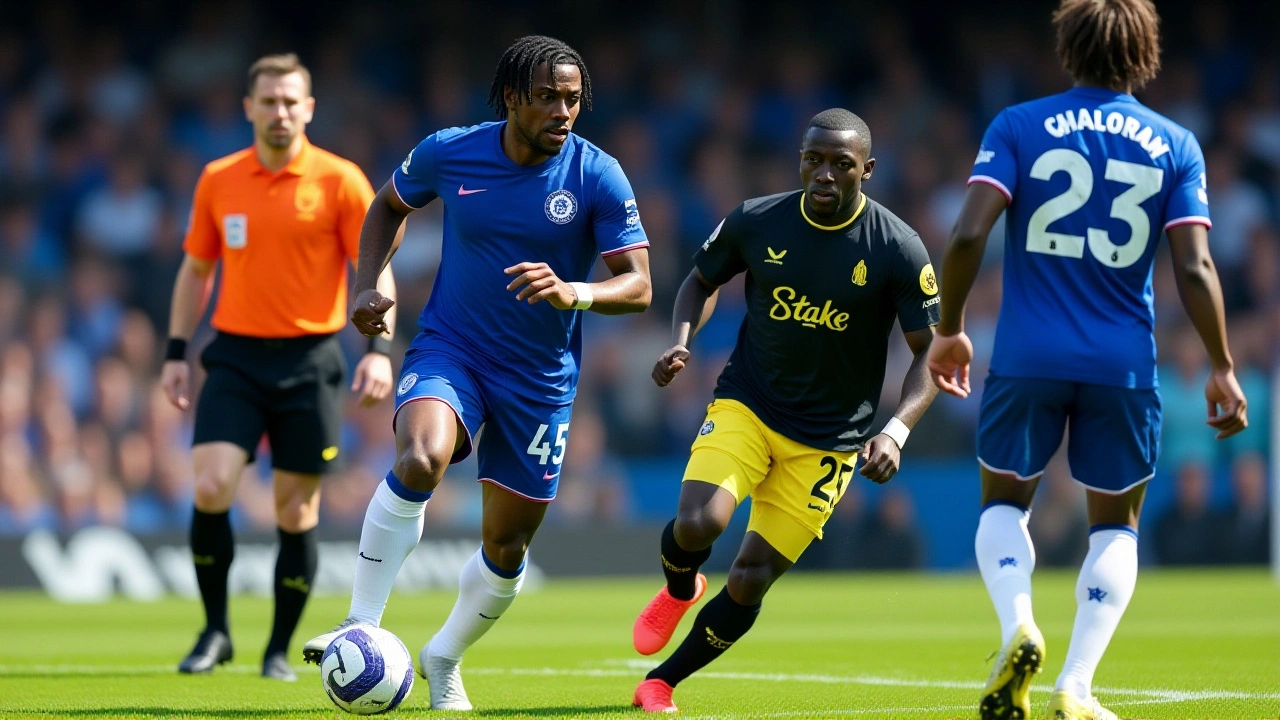Mauricio Pochettino: Latest News, Tactics & Impact
When talking about Mauricio Pochettino, an Argentine‑born football manager famous for a high‑pressing, youth‑focused style. Also known as Poch, he currently directs Tottenham Hotspur, a London‑based Premier League club with a reputation for attacking football. His approach blends fitness, tactical flexibility, and a willingness to trust young talent, which has reshaped how his teams compete at the top level.
In the broader Premier League, England's top‑flight competition known for its intensity and financial clout, Pochettino's methods have sparked a wave of tactical innovation. Clubs now study his press‑and‑recover cycles to stay competitive, and managers frequently cite his influence when talking about modern football. This ripple effect means his ideas reach beyond just Tottenham, affecting rivals like Chelsea, another Premier League heavyweight that recently embraced a more aggressive, possession‑based game under new coaching staff.
Why Pochettino Matters Right Now
Fans and analysts alike watch Pochettino because he delivers measurable results: improved defensive stats, higher goal‑creation numbers, and a clear development path for academy graduates. For example, his last season saw Tottenham rank in the top three for pressing intensity while also maintaining a balanced possession rate, a rare combination in a league dominated by physical play. Moreover, his emphasis on data‑driven decision‑making aligns with the Premier League's growing analytics culture, making him a bridge between traditional coaching instincts and modern technology.
Another key point is his ability to handle pressure situations. In knockout fixtures, Pochettino often switches to a compact 4‑2‑3‑1 formation, boosting midfield control and allowing quick transitions. This tactical switch has helped his sides survive tight matches, illustrating his knack for reading the game in real time. Such adaptability is vital in a competition where every point can decide Champions League qualification or mid‑table safety.
Beyond tactics, Pochettino’s leadership style creates a distinct locker‑room atmosphere. He promotes open dialogue, giving players a voice in training adjustments and match preparation. This democratic approach reduces friction and builds trust, especially among younger squad members hungry for minutes. The result is a squad that often outperforms expectations, as seen when Tottenham exceeded preseason forecasts despite a modest transfer budget.
From a scouting perspective, Pochettino’s network spans South America, Europe, and Africa. He regularly spots emerging talent in under‑represented markets, signing them before rival clubs notice. This talent pipeline fuels his philosophy of blending experience with raw potential, ensuring squad depth throughout a long season. Clubs like Chelsea have taken note, investing more in global scouting to mimic this success.
Financially, Pochettino’s model offers a sustainable path for clubs chasing European glory without overspending. By developing homegrown players and using smart loan deals, he cuts wage bills while maintaining competitiveness. This business‑friendly approach resonates with owners seeking both on‑field triumphs and fiscal responsibility.
Looking ahead, the next few months will test Pochettino’s adaptability further. With the summer transfer window approaching, he must balance retaining key performers and integrating fresh signings that fit his high‑press system. How he navigates this will determine whether Tottenham can push for a top‑four finish or settle for mid‑table stability.
For readers interested in the practical side of his coaching, we’ll explore session plans, conditioning routines, and match‑day preparations used by Pochettino’s staff. Expect clear examples you could adapt at any level of the game, from youth academies to semi‑professional squads.
Below you’ll find a curated collection of articles covering Pochettino’s latest tactical tweaks, transfer rumors, and insider commentary on his impact across the Premier League. Dive in to see how his philosophy is reshaping modern football and what it means for clubs like Tottenham and Chelsea.

Chelsea vs Nottingham Forest: Final‑Day Lineup and Champions League Race
Oct 18, 2025 / 11 Comments
Chelsea face Nottingham Forest on May 25, 2025, needing a win to clinch Champions League football; lineup, injuries and stakes explained.
READ MORERECENT POSTS
- Chelsea vs Wrexham: Pre-season Friendly Ends in Thrilling Draw
- Spain vs England: UEFA EURO 2024 Final Showdown in Berlin
- Manchester United Pursue Signing of Arsenal's Prodigy Chido Obi-Martin: Future Soccer Star in the Making
- Tinubu's Upcoming Decision on New Minimum Wage to Address Nigeria's Economic Hardships
- James Rodriguez Returns to La Liga with Rayo Vallecano Free Transfer
